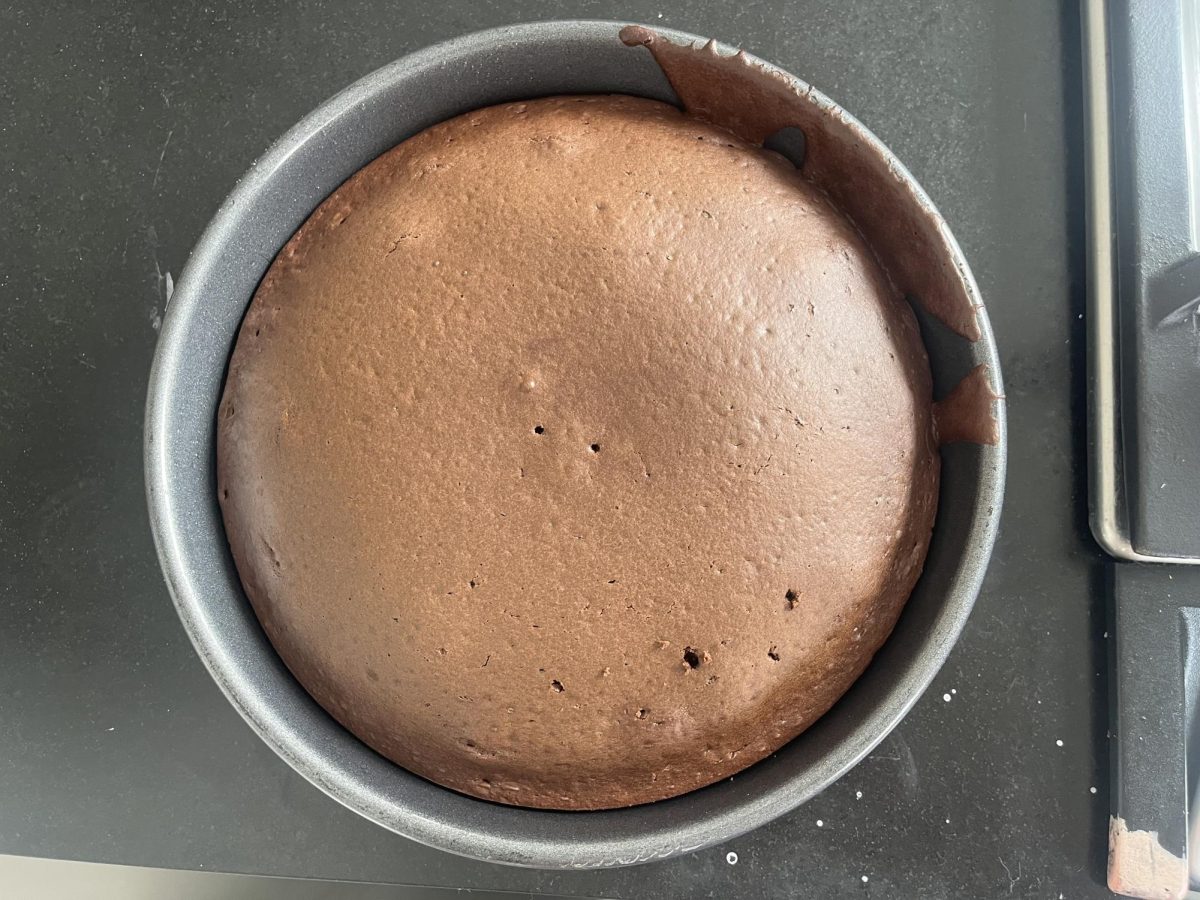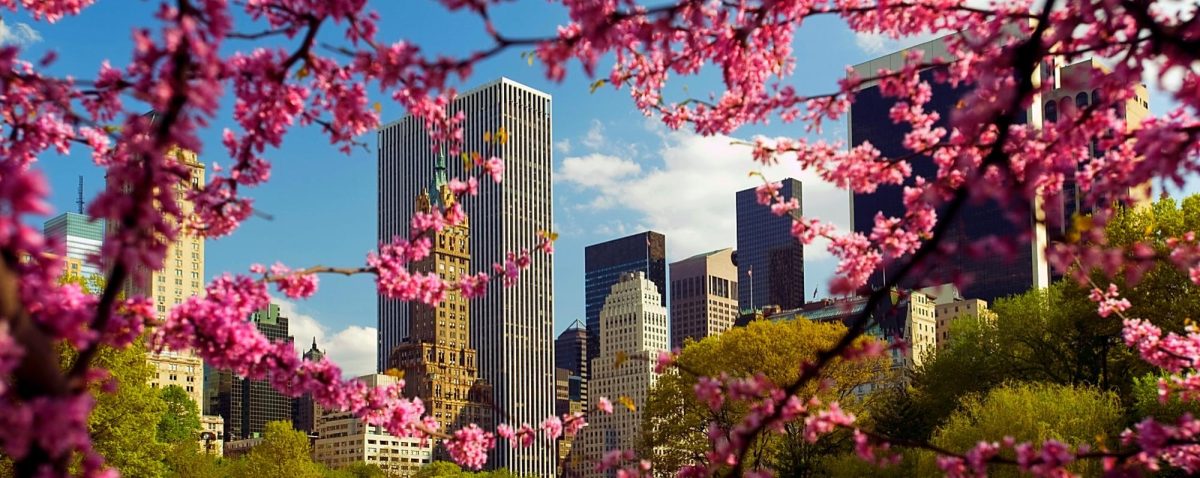One peachy day in the iSchool, Declan Parlemure danced over to a table in the cafeteria. He hadn’t eaten breakfast so he couldn’t wait to be nourished with a delicious, nutritious lunch.
He excitedly took a bite out of a pear, and it was the driest, sourest pear he had ever tasted. Declan’s face wrinkled up into ways he didn’t even know were possible. He had to dispose of the pear before it claimed another victim, but he didn’t want to waste it.
He tossed it into a bin labeled “Compost: Food scraps only” so the pear could be one with the environment once again and have another purpose in the future.
Little did young Declan know that the bin was a trap! He was really tossing the pear into a prison of plastic, styrofoam, and paper! The pear is now being sent away to a landfill, where it cannot decompose properly, and it becomes another obstruction of space in the world. Declan accidentally contributed to global warming and expanding landfill that day, when all he wanted to do was to get the pear out of his hands. Is there a better way to get rid of waste or are we all doomed?
Currently at the NYC iSchool, separate bins for waste are basically useless. Everything gets mixed in every bin, and I’ve wanted to know if everything is actually getting thrown out where it’s supposed to be.
You see, I’m pretty big on environmental health. I’ve seen the beautiful Rocky Mountains of Colorado standing tall and powerfully, and I don’t want them to stand shortly above the ocean. I don’t want the snow to melt and for it to turn the mountains into a hot, tropical island with high water. Unfortunately, if we as a society don’t do something, that may be where we’re heading. A start to prevent that may be composting!
Composting helps organic materials be turned into other organic materials. When you put food scraps into compost bins, they eventually end up in nature, farms, gardens and all sorts of other places like golf courses and sports fields to enhance the soil so the earth stays alive there and so plants can grow.
That’s what is supposed to happen, but currently only 5% of food waste gets composted in the U.S. It sounds like one or two people aren’t doing their job! It’s also a local issue. In New York City, mandatory composting is going to become a law in spring of 2025. However, this doesn’t mean that everyone will start composting.
Right now, outside of every public school, there is a curbside compost bin that one needs a certain app to unlock. This probably ensures that people are passionate about composting because they’re willing to go to the length to use the app, and it prevents other people from throwing trash in it, but it also means that a lot of food scraps will not be put in those bins because many people don’t have time to use the app to unlock them while they’re passing by.
According to the Recycling Council of British Columbia, “there are many benefits to keeping organic material out of the landfill. Engineered landfills are anaerobic environments, meaning they decompose without oxygen. When organic materials break down in anaerobic environments, methane gas is produced. Methane is a potent greenhouse gas and contributes directly to climate change. In the landfill, buried under layers of waste and without access to light or oxygen, food cannot decompose properly. Approximately 40% of landfill material is organic. Landfill space is limited, and creating more landfills is undesirable. By eliminating this bulk, more space is created and the landfill’s lifespan is extended. Composting facilities are great for the surrounding community. Not only does this process employ local residents, it also provides surrounding areas with nutrient-rich soil that is made out of our organic waste.”
NYC iSchool has great, fulfilling classes and clubs related to so many different career paths, the students and teachers are fun and kind, the teachers understand students’ different learning needs, and they don’t give an overwhelming amount of homework. It’s a great environment for me, but it’s not fantastic at supporting the natural environment. Separated waste bins have no meaning to many people here. A lot of people throw whatever in whatever, and that influences other people to do the same, because they see that the bins already have mixed items in them, so their attempts to make a change won’t matter. I have been following that mentality for a while, but I’m realizing that this may not be entirely true. This doesn’t only apply to NYC iSchool. My friends, Antonín Beise, Khalil Tiktinsky, Hana and Liam Hisama-Vishio, and Dominic McLaughlin, who go to other schools also said that their schools’ waste systems are poorly sorted.
Club members of the Green Team said they had been trying to figure out how to fix this problem, but junior Lena Goings said, “Not a lot of people put their waste in the correct bins. So much so, in fact, that the janitor literally has no choice but to throw out all of the waste from every bin into the general garbage. It really requires a big culture change. A lot of people know that everything goes into the garbage anyway, so they don’t really care to put things in the correct bins. Sometimes there’s not an appropriate bin in the room you’re in.”
In regard to creating a new system, Lena said, “We’d have to involve the janitorial and maintenance staff, which would be a really complicated endeavor. There’s a lot of bureaucracy involved.”
Assistant principal Ms. Leimsider said, “I have definitely noticed that, regardless of where the garbage is put, it all gets put in one bag when the custodians pick it up.”
When I heard this, my heart sank. I had interviewed countless people and wasted our time. I had planned to go through so much trouble to get teachers to enforce separated waste bins just for everything to end up in the same, dirty bag? All that work was for nothing.
However, Ms. Leimsider’s next response, when I asked for clarification, got my hopes up a bit: “I don’t know what happens after the custodians pick it up from this floor. Like, I don’t know if it’s separated somewhere else. I don’t know what happens once it leaves our garbage bins.”
I spoke with Joel, a custodian, to see if everything was really put in the same bag. From our conversation, it’s clear that the way the waste is handled is not his fault. Joel already has a big job, so if everything is mixed together before he gets to it, it’s impossible for him to properly put things in their final places. It seems like making a better system actually starts with the students putting things in the correct bins.
Liam Cifuentes, in the ninth grade, said he usually tries to put things in the right bins at school. I asked him if there’s anything the school can do to enforce a better waste system at the iSchool, and Liam said, “At my old school teachers would be super serious about putting things in the right bins. Sometimes I would realize I put something in the wrong bin and I would reach to put it in the right one, but before I could, a teacher would say ‘Put it in the right bin Liam!’” This shows that perhaps teachers could be more strict about putting things in the right bins.
I asked Ms. Tait, the principal, if there’s a way to encourage teachers to enforce that. Ms. Tait said, “I think that does start from the custodian. It’s hard to take something seriously knowing that it all ends up potentially going to the same garbage.”
Ms. Tait also said, “We don’t have any composting bins down here. I don’t know if there’s a compost bin on the roof, but we don’t have a composting system internally.” This gives us a glimpse into the fact that teachers at NYC iSchool don’t know as much about composting as they should.
The school should compost, because it’s the law now! On May seventh, 2024, New York City Mayor Eric Adams, New York City Department of Education (DOE) Chancellor David C. Banks, and New York City Department of Sanitation (DSNY) Commissioner Jessica Tisch announced that “the Adams administration has completed its expansion of composting to every single New York City public school, three months ahead of schedule. That means that all New York City public schools are now composting their food waste — putting their orange peels, uneaten pizza crusts, compostable food trays, and more to beneficial use for the city and for the planet, helping gardens grow, and creating power through renewable energy here in the New York City area.”
Learning specialist Ms. Karki said that she sometimes has something like a plastic water bottle with a bit of leftover water in it, and if there’s not a sink nearby to pour it out, she doesn’t know how the water could affect other recycled materials in a recycling bin, so she just throws it in the trash. I think a lot of people including me also go through this, because it can be hard to know what to do with waste, especially compost.
Science teacher Ms. Brown said, “At one point we tried to start a composting program, and we had little tiny composting trash cans, but we have a green team. They tried to make a composting plan, but over one break there were fruit flies, and it didn’t really go anywhere. I actually have a composting bin on the roof, but that’s also not used properly. So we don’t actually compost. I think Chelsea had a green team that tried composting in their school in the cafeteria, but I don’t know if it’s functioning. Also, people have tried partnering with the Green Team but nobody has been successful with that.”
I interviewed Perla and Kelia who work in the school’s cafeteria. Perla said that making a change in a system starts with the kids, because it’s easier to mold a kid into doing something right than it is to an adult.
My mom and I discussed a system that could be enforced in the school, where every day it would be mandatory for two students to volunteer in front of the trash, recycling, and compost bins in the cafeteria at lunch to tell people what bins to put items in when they go to throw something away. However, this system may not be very effective, because there are other bins all around the school, and nobody has time to monitor those for the whole day.
Raphael Safran Nau, in the ninth grade, said that a lot of students wouldn’t want to do that, so a better solution would be a required class where students would sort compost, recycling and trash.
Unfortunately, Ms. Leimsider and Ms. Tait said that wouldn’t work because a class like that doesn’t fit a credit that the Department of Education made, and it wouldn’t last long enough to actually make much of a change.
Luckily, the city is already trying to do something to fix this issue! According to David C. Banks, who is the chancellor of New York City public schools, “Here’s how composting works: Students and staff place food scraps, napkins and compostable trays and utensils into DSNY brown bins. Food needs to be sorted correctly, and many schools have created green teams, led by students, who monitor waste disposal in our cafeterias and teach their peers about composting. Our Office of Energy & Sustainability also provides composting training and ongoing support to our educators, custodian engineers, and school food staff. Then, after DSNY collects these food scraps, they are turned into fertilizer, which our schools can request to use in their school gardens, or biogas, a renewable alternative to fossil fuels that can help power our city.” This proves that the DSNY will offer a lot of help with composting, but schools still need to make an effort to accept the help and sort waste properly themselves.
Luckily, iSchool had already started to improve their ecological ways even before I started this project. They have compostable forks made from materials such as corn. Their disguise is so good, and I completely thought they were made of plastic before I learned this!
It seems like a lot of people at the iSchool care about environmental health, but they need to be motivated to make a change. The path isn’t exactly crystal clear, but I think there are a few possible steps we can take forward.
For example, we can make bigger signs above the waste bins, clearly displaying what to put in each bin. We can also assure that the custodians put things in separate bags. There’s even a chance that we could make a club where people sort compost, trash and recycling. If those things were to happen, it could mean that the next time Declan Parlemure puts a pear in a compost bin, that pear will be with its true people, decomposing together and becoming a part of nature, instead of being trapped with intrusive plastic.
If people follow the law properly, put food scraps in compost bins and keep other trash out of them, we could be part of the solution to our environmental issues. However, if people don’t start doing that soon, more food scraps could be sent to landfills, unable to break down in soil properly, and produce more methane which will burn holes in the ozone layer, contributing to climate change. If you want New York City to be covered in a blanket of snow again in the winter, you should take action and start organizing waste today!













